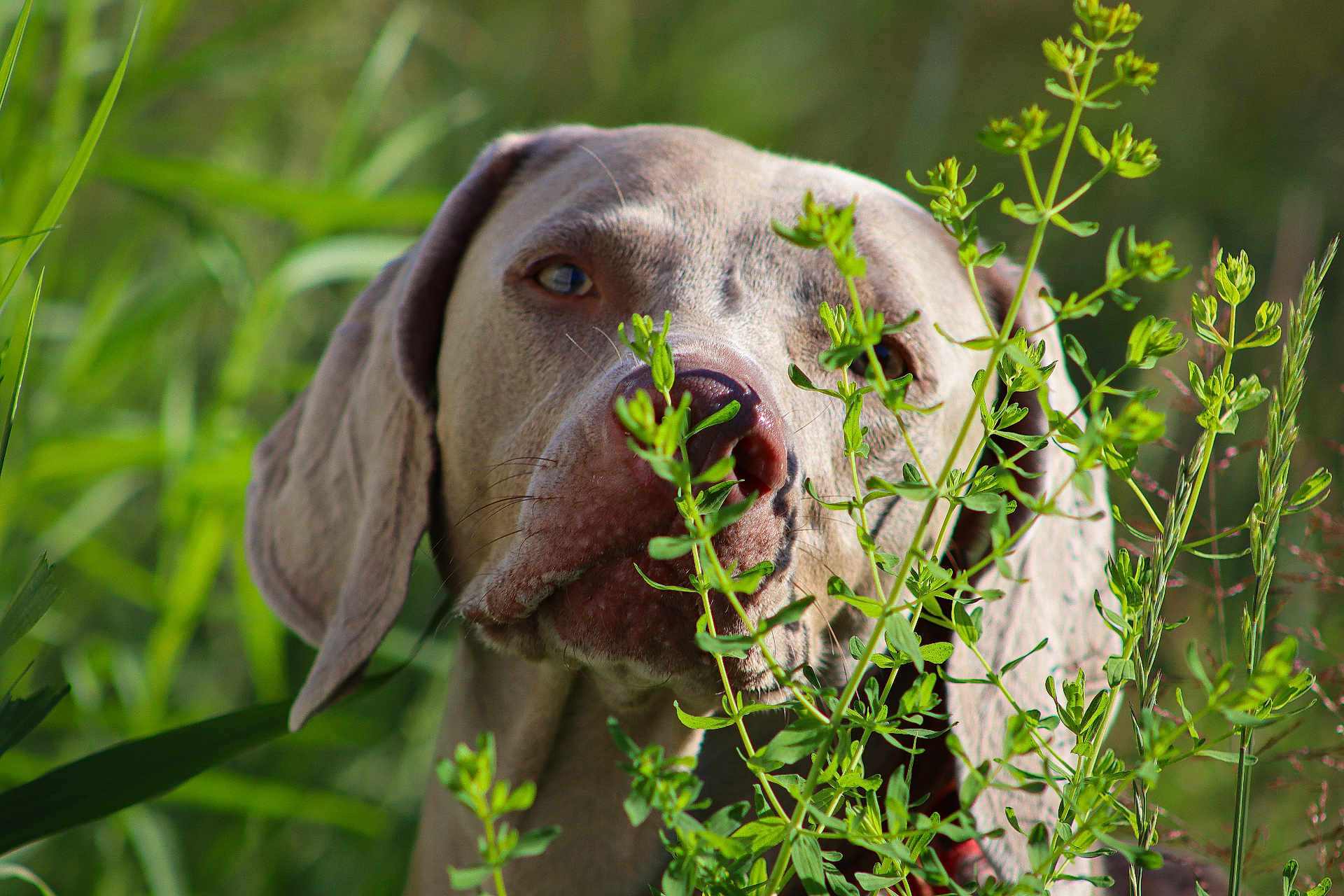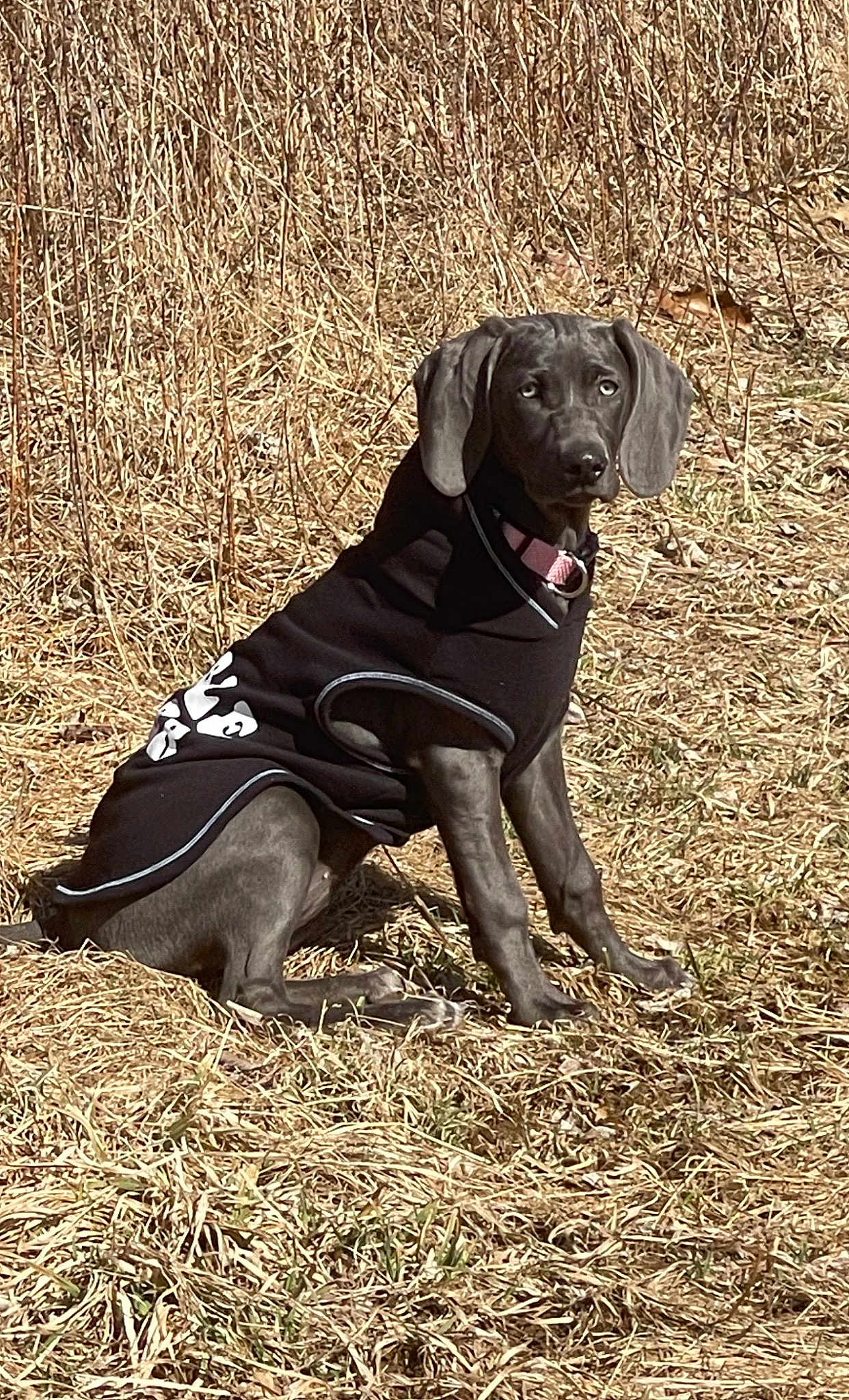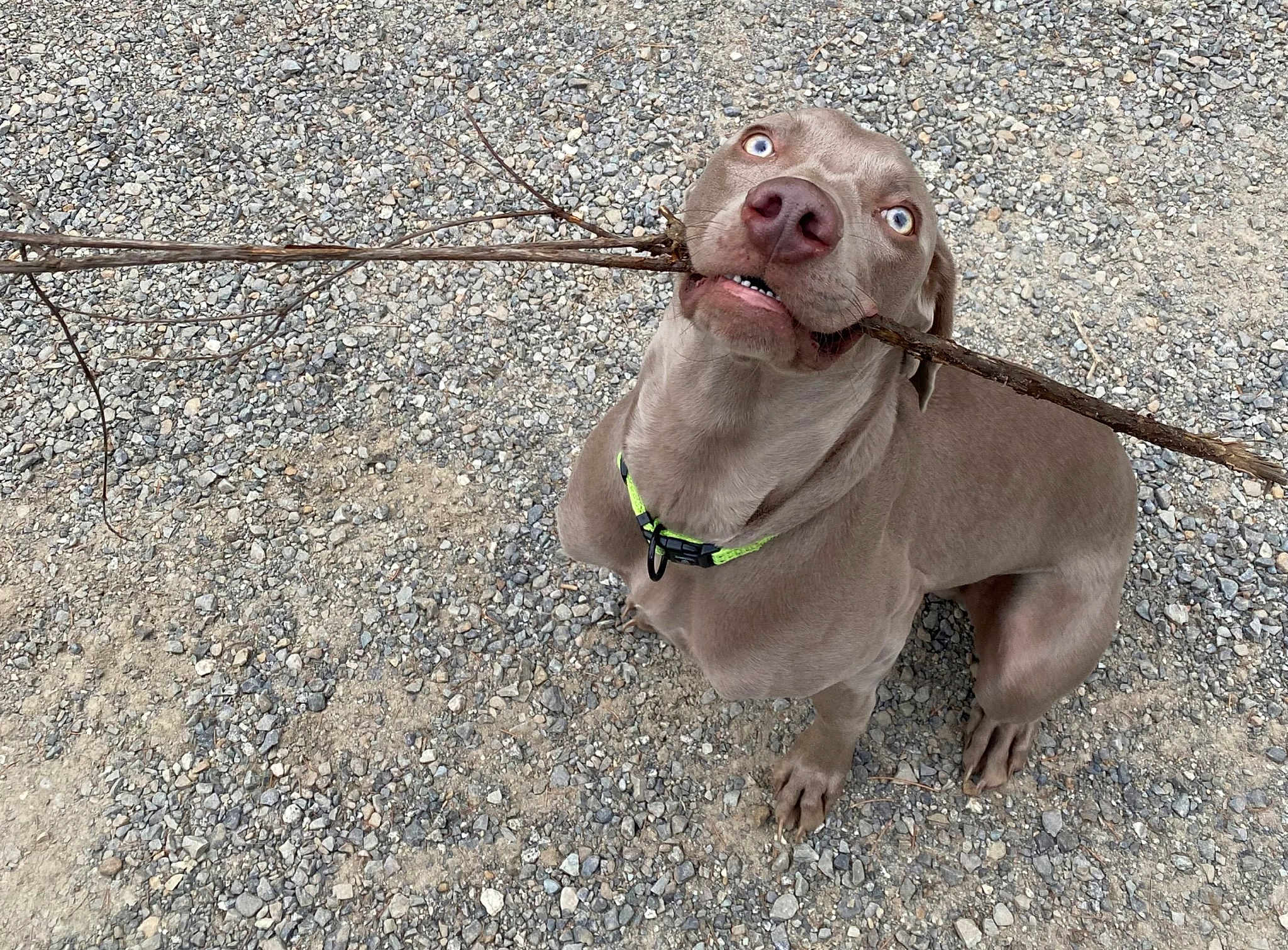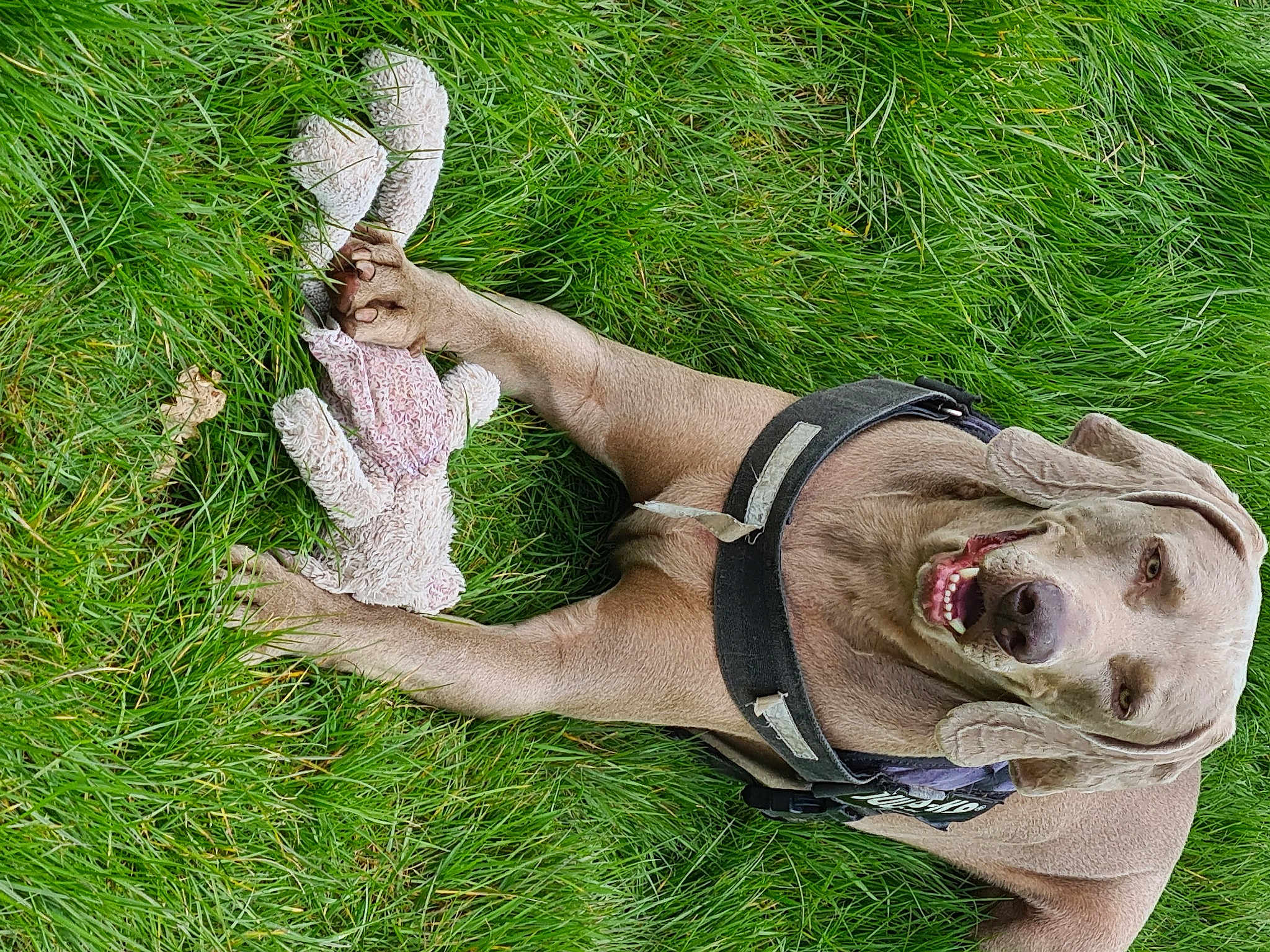
"Known for their stunning silver-grey coats and piercing blue eyes, Weimaraners have long been called the 'Grey Ghost'—an affectionate term for their sleek, ethereal appearance."
Personality and Behavior of the Weimaraner
Weimaraners are celebrated for their intelligence, loyalty, and high energy levels. Often described as people-oriented dogs, they thrive on close human companionship. This breed is not just a pretty face; they have the brains and athleticism to match as well. Weimaraners are often utilized in hunting, tracking, and even search and rescue tasks. Their intelligence makes them quick learners, but they also have a strong will, making consistent training a necessity.
One of the most endearing qualities of the Weimaraner is their boundless enthusiasm and playful nature. They are fantastic family pets for households that can provide the physical and mental stimulation they demand. However, their high energy means they are best suited for active families that have plenty of time for play and exercise. Weimaraners are known to form strong bonds with their owners, sometimes leading to separation anxiety if left alone for extended periods.
Weimaraners also have a strong protective instinct, making them good watchdogs. They are naturally wary of strangers but will warm up once they sense no threat. Their curiosity and adventurous spirit can lead them to explore and embark on "missions," so a securely fenced yard is recommended to keep these agile explorers safe.
"One quirky behavior noted in Weimaraners is their tendency to 'talk' back to their owners. Not in a disruptive manner, but through a series of grumbles, whines, and barks, they often express their feelings, making them highly interactive pets."
Meanings, History, and Origins of the Name Weimaraner
The Weimaraner breed has a rich history that dates back to the early 19th century in Germany. The dog gets its name from the Grand Duke of Weimar, Karl August, who was instrumental in the breed's development. The German nobility, including Duke Karl, had a keen interest in hunting, which led them to develop a dog that could hunt large game such as boars and deer. They aimed to create a versatile hunting dog that exhibited excellent tracking abilities, speed, and endurance.
The Weimaraner we know today is a result of selective breeding of several breeds, including the Bloodhound, English Pointer, and Great Dane. This mix was aimed at producing a dog with the scenting ability of the Bloodhound, the pointing instincts of the English Pointer, and the size and strength of the Great Dane. The result was an impeccable hunting companion that was highly valued among German nobles.
The breed’s striking appearance, with its sleek silver-grey coat and mesmerizing eyes, intrigued many, eventually leading to its introduction to other parts of Europe and North America in the early 20th century. While initially a well-guarded secret among German elites, the Weimaraner gradually gained popularity due to its extraordinary abilities and beauty.
Popularity of the Weimaraner
The Weimaraner's popularity began to soar in the United States and other English-speaking countries after World War II, thanks to returning American soldiers who brought them home. In the United States, the breed found a prominent advocate in Howard Knight, who imported the first Weimaraners to the country and actively promoted the breed via the American Kennel Club (AKC).
In the modern era, Weimaraners continue to capture the hearts of dog lovers worldwide. They frequently appear in dog shows, agility competitions, and obedience trials, showcasing their versatility and excellence. The AKC currently ranks the Weimaraner as one of the more popular breeds in the United States, a testament to the breed's lasting appeal.
Outside of English-speaking countries, the Weimaraner enjoys a strong following in many parts of Europe, particularly in Germany where the breed originated. However, their popularity extends globally, making them a beloved breed in countries like Australia, Canada, and various nations across Asia.
Despite their wide appeal, owning a Weimaraner isn’t without its challenges. These dogs require a lot of attention, exercise, and mental stimulation. Potential owners need to be fully prepared for the commitment that comes with the adoption of such an active and intelligent breed.
Health and Care of the Weimaraner
Weimaraners are generally a healthy breed, but they are prone to specific genetic and lifestyle-related health issues. One of the most common concerns is hip dysplasia, a condition where the hip joint doesn’t fit properly, leading to arthritis and pain. Regular vet check-ups and maintaining a healthy weight can mitigate some of these risks.
Another health issue to be aware of is bloat (gastric dilatation-volvulus), which is common in large, deep-chested breeds like the Weimaraner. This condition is life-threatening and requires immediate veterinary intervention. Owners can reduce the risk by feeding smaller, more frequent meals and avoiding vigorous exercise immediately after eating.
Weimaraners also need a balanced diet that meets their high energy demands. Premium dog food rich in proteins and healthy fats is often recommended. Additionally, regular exercise is crucial—be it long walks, runs, or play sessions. Mental stimulation through training, puzzles, and interaction is equally important to prevent boredom-induced behaviors like excessive chewing and digging.
Grooming a Weimaraner is relatively low maintenance due to their short coat. However, they do shed, so regular brushing will help minimize loose hairs around your home. Other grooming needs include regular teeth brushing, ear cleaning, and nail trimming.
Training and Education of the Weimaraner
Training a Weimaraner can be both rewarding and challenging. Their high intelligence means they can quickly pick up new commands, but their independent and sometimes stubborn nature requires a firm and consistent approach. Positive reinforcement methods work best with this breed. Treats, praise, and playtime should be used to encourage desired behaviors.
Early socialization is also critical for Weimaraners. Exposing them to various environments, people, and other animals at a young age can help them grow into well-rounded adults. Puppy training classes are an excellent way to start this process.
Obedience training should begin as soon as you bring your Weimaraner home. Focus on the basic commands first—sit, stay, come, and down. Consistency and patience are key, as Weimaraners can become bored or distracted if training sessions are too long or repetitive.
Given their hunting heritage, Weimaraners excel in field trials and agility competitions. Training them for these activities can provide much-needed physical and mental stimulation. Always use gentle, positive methods and avoid harsh corrections, as Weimaraners are sensitive dogs that may shut down if treated unfairly.
Choosing the right dog for your family involves considering various factors such as your lifestyle, activity level, and the environment you can provide. For those with an active lifestyle, ample space, and a lot of love to give, the Weimaraner is an excellent choice. They require time and effort but reward their owners with loyalty, love, and countless joyful moments.
The Weimaraner continues to be a popular choice among dog lovers for its unique blend of beauty, intelligence, and athleticism. At KingPet, we see many Weimaraners participating in our contests, capturing hearts with their stunning looks and dynamic personalities. If you're searching for a dog that offers both companionship and excitement, the Weimaraner might just be the perfect breed for you.






































































































